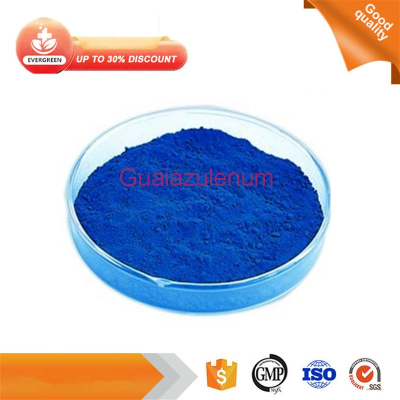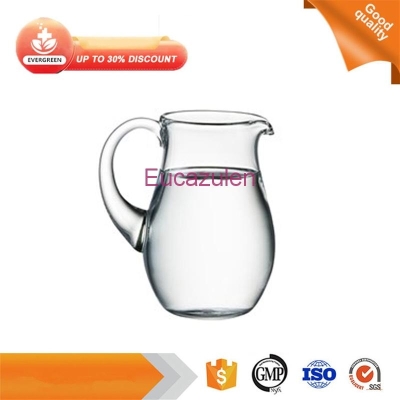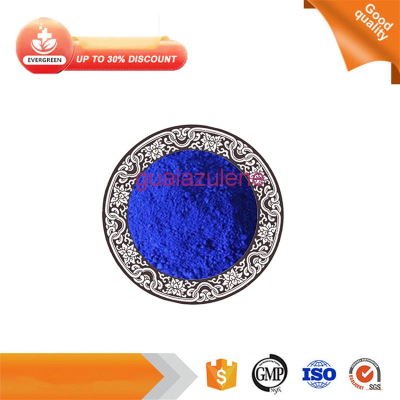-
Categories
-
Pharmaceutical Intermediates
-
Active Pharmaceutical Ingredients
-
Food Additives
- Industrial Coatings
- Agrochemicals
- Dyes and Pigments
- Surfactant
- Flavors and Fragrances
- Chemical Reagents
- Catalyst and Auxiliary
- Natural Products
- Inorganic Chemistry
-
Organic Chemistry
-
Biochemical Engineering
- Analytical Chemistry
- Cosmetic Ingredient
-
Pharmaceutical Intermediates
Promotion
ECHEMI Mall
Wholesale
Weekly Price
Exhibition
News
-
Trade Service
Lower respiratory tract infection (LRTI) is one of the main causes of death from infectious diseases worldwide.
Severe community-acquired pneumonia (sCAP) is one of the common and important causes of sepsis in hospitalized patients, and sCAP will bring a higher clinical burden , It needs strict management.
Although there are many guidelines for the diagnosis, treatment and management of sCAP, its mortality rate is still high, indicating that more clear recommendations are needed in the management of CAP patients
.
In clinical practice, the pathogen of sCAP is usually not clear
.
In clinical studies, it was found that Streptococcus pneumoniae is a common pathogen of CAP, and the proportion of viruses as pathogens is gradually increasing.
In addition, multi-drug-resistant Gram-negative bacteria are also increasing
.
And due to the increase of antibiotic resistance, the morbidity, mortality and medical burden of sCAP are also getting heavier
.
Etiology examination Etiology is one of the most controversial issues in CAP.
In non-serious CAP cases, since the choice of antibiotics may not change, it may not be very important to determine the cause
.
However, in sCAP, since the possibility of multidrug-resistant pathogens is higher, it is necessary to determine the pathogens and use antibiotics in a targeted manner
.
In the American Infectious Disease Society/American Thoracic Society (IDSA/ATS) guidelines, it is recommended that only in sCAP patients, patients may be infected by methicillin-resistant Staphylococcus aureus (MRSA) or Pseudomonas aeruginosa.
Etiological examinations are performed in patients infected with MRSA or Pseudomonas aeruginosa, and those who have been hospitalized in the past 90 days
.
The application of scoring tools There are many scoring tools for identifying and evaluating CAP patients, such as pneumonia severity index (PSI) score and CURB-65 (including blood urea nitrogen, respiratory rate, etc.
); in addition to the special score of CAP, there are other more general scoring tools.
for patients with sepsis score, such as the British national early warning score (NEWS), fast SOFA score (qSOFA) and so on
.
A number of systematic reviews and meta-analysis have shown that PSI, CURB-65, and CRB-65 are usually used for hospital admission risk assessment, and PSI helps to identify patients with lower clinical risk
.
And IDSA/ATS guidelines suggest that more attention should be paid to clinical practice and combined with scoring tools such as PSI
.
For ICU risks, IDSA/ATS guidelines recommend the use of its judgment criteria
.
Table 1 IDSA/ATS criteria for severe pneumonia to choose antibiotics for hospitalized patients The current guidelines recommend fluoroquinolones or β-lactams combined with macrolides to treat CAP; if entering the ICU, it is recommended to use β-lactams combined Fluoroquinolone or macrolide drugs
.
Recommendations for the treatment time of CAP and sCAP There is no good recommendation for the treatment time of CAP patients, and the recommendations of different guidelines are also different
.
Generally speaking, the longer the treatment, the higher the possibility of developing resistant strains and the higher the risk of complications such as Clostridium difficile infection (CDI)
.
In a meta-analysis more than 10 years ago, for patients with mild and moderate CAP, no difference was found in the efficacy of medication time <7 days and medication time ≥ 7 days; another meta-analysis compared 3-7 days with 7-10 days of medication time, it was found that there was no difference in clinical cure, mortality, and adverse events; in a recent meta-analysis, the treatment time of ≤ 6 days was compared with the treatment time of ≥ 7 days, and it was found that the two groups were cured The rate is similar to the recurrence rate, but the "short-term" regimen has fewer adverse events and mortality.
In the subgroup analysis of sCAP, the mortality rate of the "short-term" regimen is still low
.
The current IDSA/ATS guidelines recommend that the duration of antibiotic treatment should be individualized and used for at least 5 days.
The treatment should be stopped after clinically stable and fever-free for 48 hours.
If necrotizing pneumonia, lung abscess, complicated pneumonia parapleural effusion occurs, extrapulmonary In case of infection or atypical pathogen infection, the treatment time should be extended
.
The use of biomarkers, especially procalcitonin (PCT), can be used to guide the management of antibiotics
.
However, sCAP and the treatment time of patients involving atypical pathogens need further study
.
Different guidelines for the use of glucocorticoids have different recommendations.
The South African guidelines recommend the use of glucocorticoids for sCAP patients in the ICU, but the US guidelines do not recommend the routine use of corticosteroids in sCAP patients
.
Glucocorticoids are used only when intractable septic shock occurs in CAP patients
.
Several published systematic reviews and meta-analysis found that sCAP patients receiving glucocorticoid therapy have lower mortality and morbidity, significantly shorter ICU time, and reduced ventilation requirements; there are differences between different types of glucocorticoids.
Such as the use of prednisolone or methylprednisolone can reduce the mortality of sCAP patients, but hydrocortisone does not have this phenomenon
.
Two aspects should be noted, the benefit of glucocorticoids in patients with a high degree of systemic inflammation, and no benefit in influenza pneumonia
.
Summary sCAP is an all-attribute infectious disease, and the mortality rate is still very high
.
Current international guidelines emphasize the importance of molecular testing to determine the etiology of infections
.
The duration of antibiotic treatment is a hot research direction, and a balance needs to be struck between clinical cure and avoiding antibiotic resistance
.
References: 1.
Martin-Loeches I, Torres A.
New guidelines for severe community-acquired pneumonia.
Curr Opin Pulm Med.
2021 May 1;27(3):210-215.
2.
Metlay JP, Waterer GW, Long AC , et al.
Diagnosis and Treatment of Adults with Community-acquired Pneumonia.
An Official Clinical Practice Guideline of the American Thoracic Society and Infectious Diseases Society of America.
Am J Respir Crit Care Med.
2019 Oct 1;200(7):e45- e67.
Severe community-acquired pneumonia (sCAP) is one of the common and important causes of sepsis in hospitalized patients, and sCAP will bring a higher clinical burden , It needs strict management.
Although there are many guidelines for the diagnosis, treatment and management of sCAP, its mortality rate is still high, indicating that more clear recommendations are needed in the management of CAP patients
.
In clinical practice, the pathogen of sCAP is usually not clear
.
In clinical studies, it was found that Streptococcus pneumoniae is a common pathogen of CAP, and the proportion of viruses as pathogens is gradually increasing.
In addition, multi-drug-resistant Gram-negative bacteria are also increasing
.
And due to the increase of antibiotic resistance, the morbidity, mortality and medical burden of sCAP are also getting heavier
.
Etiology examination Etiology is one of the most controversial issues in CAP.
In non-serious CAP cases, since the choice of antibiotics may not change, it may not be very important to determine the cause
.
However, in sCAP, since the possibility of multidrug-resistant pathogens is higher, it is necessary to determine the pathogens and use antibiotics in a targeted manner
.
In the American Infectious Disease Society/American Thoracic Society (IDSA/ATS) guidelines, it is recommended that only in sCAP patients, patients may be infected by methicillin-resistant Staphylococcus aureus (MRSA) or Pseudomonas aeruginosa.
Etiological examinations are performed in patients infected with MRSA or Pseudomonas aeruginosa, and those who have been hospitalized in the past 90 days
.
The application of scoring tools There are many scoring tools for identifying and evaluating CAP patients, such as pneumonia severity index (PSI) score and CURB-65 (including blood urea nitrogen, respiratory rate, etc.
); in addition to the special score of CAP, there are other more general scoring tools.
for patients with sepsis score, such as the British national early warning score (NEWS), fast SOFA score (qSOFA) and so on
.
A number of systematic reviews and meta-analysis have shown that PSI, CURB-65, and CRB-65 are usually used for hospital admission risk assessment, and PSI helps to identify patients with lower clinical risk
.
And IDSA/ATS guidelines suggest that more attention should be paid to clinical practice and combined with scoring tools such as PSI
.
For ICU risks, IDSA/ATS guidelines recommend the use of its judgment criteria
.
Table 1 IDSA/ATS criteria for severe pneumonia to choose antibiotics for hospitalized patients The current guidelines recommend fluoroquinolones or β-lactams combined with macrolides to treat CAP; if entering the ICU, it is recommended to use β-lactams combined Fluoroquinolone or macrolide drugs
.
Recommendations for the treatment time of CAP and sCAP There is no good recommendation for the treatment time of CAP patients, and the recommendations of different guidelines are also different
.
Generally speaking, the longer the treatment, the higher the possibility of developing resistant strains and the higher the risk of complications such as Clostridium difficile infection (CDI)
.
In a meta-analysis more than 10 years ago, for patients with mild and moderate CAP, no difference was found in the efficacy of medication time <7 days and medication time ≥ 7 days; another meta-analysis compared 3-7 days with 7-10 days of medication time, it was found that there was no difference in clinical cure, mortality, and adverse events; in a recent meta-analysis, the treatment time of ≤ 6 days was compared with the treatment time of ≥ 7 days, and it was found that the two groups were cured The rate is similar to the recurrence rate, but the "short-term" regimen has fewer adverse events and mortality.
In the subgroup analysis of sCAP, the mortality rate of the "short-term" regimen is still low
.
The current IDSA/ATS guidelines recommend that the duration of antibiotic treatment should be individualized and used for at least 5 days.
The treatment should be stopped after clinically stable and fever-free for 48 hours.
If necrotizing pneumonia, lung abscess, complicated pneumonia parapleural effusion occurs, extrapulmonary In case of infection or atypical pathogen infection, the treatment time should be extended
.
The use of biomarkers, especially procalcitonin (PCT), can be used to guide the management of antibiotics
.
However, sCAP and the treatment time of patients involving atypical pathogens need further study
.
Different guidelines for the use of glucocorticoids have different recommendations.
The South African guidelines recommend the use of glucocorticoids for sCAP patients in the ICU, but the US guidelines do not recommend the routine use of corticosteroids in sCAP patients
.
Glucocorticoids are used only when intractable septic shock occurs in CAP patients
.
Several published systematic reviews and meta-analysis found that sCAP patients receiving glucocorticoid therapy have lower mortality and morbidity, significantly shorter ICU time, and reduced ventilation requirements; there are differences between different types of glucocorticoids.
Such as the use of prednisolone or methylprednisolone can reduce the mortality of sCAP patients, but hydrocortisone does not have this phenomenon
.
Two aspects should be noted, the benefit of glucocorticoids in patients with a high degree of systemic inflammation, and no benefit in influenza pneumonia
.
Summary sCAP is an all-attribute infectious disease, and the mortality rate is still very high
.
Current international guidelines emphasize the importance of molecular testing to determine the etiology of infections
.
The duration of antibiotic treatment is a hot research direction, and a balance needs to be struck between clinical cure and avoiding antibiotic resistance
.
References: 1.
Martin-Loeches I, Torres A.
New guidelines for severe community-acquired pneumonia.
Curr Opin Pulm Med.
2021 May 1;27(3):210-215.
2.
Metlay JP, Waterer GW, Long AC , et al.
Diagnosis and Treatment of Adults with Community-acquired Pneumonia.
An Official Clinical Practice Guideline of the American Thoracic Society and Infectious Diseases Society of America.
Am J Respir Crit Care Med.
2019 Oct 1;200(7):e45- e67.







